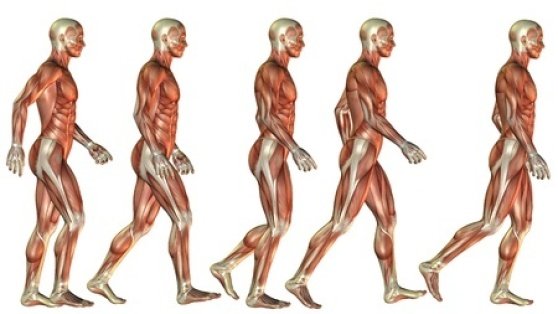 Want to be more effective at public speaking this year? Start with these four ways of increasing your relaxation and confidence with audiences.
Want to be more effective at public speaking this year? Start with these four ways of increasing your relaxation and confidence with audiences.
Think of the speakers you admire in business, politics, religion, social settings, or on the TED stage. Were any of them not relaxed or confident?
As speakers, we tend to make a fundamental mistake in our speeches and presentations: we believe it’s our content rather than we ourselves that moves audiences.
And so we prepare in the wrong way, giving all our attention to what we’re going to say instead of how we’re going to say it. So as you prepare for this year’s crop of reports, pitches, lectures, meeting remarks and formal presentations, consider the following four ways of being a more relaxed and confident speaker when it comes to reaching and moving listeners.
Are you too focused on delivering information when you speak? To establish rapport and gain influence with audiences, download my essential cheat sheet, “Great Speaking? — It’s About Performance Over Content!
Think In Terms of Your Public Speaking Audience Not Your Content
You speak to audiences to get your message across, naturally. Yet it’s easy to believe that the individual points you’re about to make are the essential components of your talk. But it's the story you're telling that matters. The "information mindset" may mean you use your preparation time to go over and over the material, convinced that if you’re successful at delivering every point just so, nothing can go wrong.
Apart from lack of spontaneity, proceeding that way means you're turning the entire public speaking equation on its head. Once you’ve gathered and organized your material, your time needs to be spent thinking of your audience. That means who they are, what their needs are, what references will resonate with them best, and the action you want them to take as a result of your talk.
When you're in that mode when you speak, you'll probably find yourself referring to points you hadn’t planned to speak about, or bringing in stories or examples that occur to you in real time. That’s a speech that’s more organic, enjoyable, and ultimately more convincing to an audience.

Improve Your Comfort Level Speaking in Public
To be that kind of speaker, you need to be comfortable with audiences. And this is an area that too many speakers ignore completely.
As I tell my speech coaching clients: whoever you are and whatever you speak about, you should spend less time thinking about your content, and more time learning how to be relaxed in front of a roomful (or an auditorium full) of people. Paradoxically, the more you stop self-monitoring and consider others' needs, the more comfortable you'll feel in your own skin.
Think about all this for a moment: Your preparation for a presentation is usually literary, i.e., you take notes, build a PowerPoint deck with bullet points, or write out a full manuscript. But your actual speech is given in the oral arena of performance, where your job is to move listeners. The more natural, authentic, and comfortable you are doing that the more effective a speaker you will be. And your level of confidence that you can succeed in these settings will soar.
Make Diaphragmatic Breathing a New Habit
If you’re not familiar with diaphragmatic breathing and the reasons it helps in public speaking, it’s time to learn. Breathing for speech is a more active form of breathing than breathing for life. It involves gaining a fuller reservoir of air to project the voice; and in particular, it requires controlling your exhalation since voice is simply exhaled air acting upon the vocal folds.
Here’s how to breathe diaphragmatically. A question clients frequently ask me is, “When should I breathe this way?” The best answer is, “Always.” That is, you should develop the habit of diaphragmatic breathing. Not only will it help you in public speaking situations. You’ll also more efficiently get oxygen to your heart and your brain.
Once you’re there, you’ll simply feel more in control of your breathing—which can easily become too rapid and shallow if you suffer from speech anxiety. The result is a calmer and more controlled oral performance, leading directly to more confidence.

For Effective Body Language, Move with Purpose
Now let's bring body language into the picture. Body language is on everyone’s mind when speaking, usually tied to the question, “What should I do with my hands?”
But there’s a lot more going on in terms of the physical expressiveness that's needed for public speaking. In fact, a good way to think about body language when you’re speaking is to simply ask yourself, “How can I give physical expression to what I’m saying?”
The body is a fundamental tool of communication, amplifying and making what you say more powerful. And of course, body language works best when it’s closely tied to what you’re saying. To speak this way, discover my 5 key body language tips of public speaking.
If you think along these lines, you can begin to move with more purpose. Consider using a different part of the room or stage with each main point you make, for instance. Think also about where you stand in relation to your audience—are there times you want to move closer to them, or closer to the screen to point out an aspect of your visuals? You can even use the actor’s knowledge that “down-center” (or the point closest to your listeners) is your strongest position for your all-important opening and closing.
Even apart from your public speaking appearances, practice moving with more purpose in your daily life. When you walk, move like someone who is actually going somewhere. Gain a sense of your connection to the earth—how it feels to walk on the ground and move through space. The body is often a source of lack of confidence in speakers. Be more mindful and comfortable in this area, and you’ll own another key to being a more confident public speaker.
Finally, take every opportunity that comes your way to get up and speak. The more familiar you become with speaking to groups, the more you'll be able to access and display your authentic self—the person the audience came to hear.
You should follow me on Twitter here.


